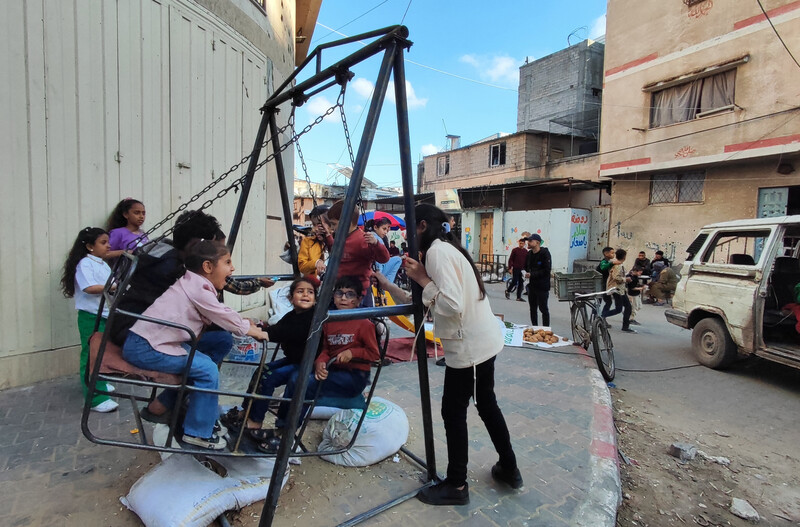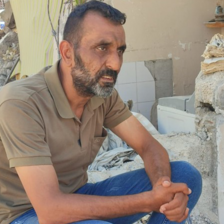The Electronic Intifada 11 September 2024

Israel has killed more than 16,000 children in Gaza to date. There are few areas for children to play in, and nowhere is safe.
APA imagesI reached Hussam Abu Ajwa on his phone.
What do you ask a man who has just lost a child?
What does a bereaved father say?
Abu Ajwa, whose daughter Tala, 10, was killed on 5 September, reached for the words of Mahmoud Darwish, a reply the late poet, while ailing and waiting to die, gave to a reporter’s question about how he felt.
“Bruised feelings and broken thoughts, and some scratched up memories. The doctor says nothing is fatal, just a little loss to the soul.”
Tala had been playing with her friends when a bomb struck a downstairs apartment in Gaza City, killing her on the spot and adding her name to the list of the nearly 17,000 children Israel has killed in Gaza since October last year.
A photograph of Tala under a white shroud wearing her pink roller skates subsequently went viral on social media.
She had asked her father if she could go out to play. Fearing for her safety, he first refused to give her permission.
But she was persistent, Abu Ajwa recalled, saying he reluctantly agreed to let her go play as long as she did not go too far away.
She had been bored, her mother, Hadeel, told The Electronic Intifada.
“She wanted to go to the amusement park. She wanted to go to the beach. She wanted to go to school. She wanted to see her friends, and she craved a lot of food, but she was deprived of everything because of the war,” Hadeel said before returning to what over the phone sounded like quietly crying.
So attached
Not more than 5 minutes had gone by after Tala left with her pink skates on when Abu Ajwa said he heard a loud explosion.
“I ran quickly from the third floor to the street,” Ajwa said.
He found Tala’s body face down covered in rubble and dust, only her roller skates visible.
He picked up her battered body and rushed to a hospital. It was too late. The medical staff could not save Tala’s life.“I loved her very much,” Abu Ajwa said. “She was cheerful and loved to have fun and laugh a lot. She was smart and had big dreams, despite her young age.”
Tala aspired to be a dentist, her father said.
The day before she was killed, Abu Ajwa said, a bomb struck near their building and sent Tala running to the safety of his arms.
“I am sad because over the last year, my daughter had to experience so much fear and so many things children shouldn’t know, like starvation and displacement,” Abu Ajwa said.
“And then she was killed while skating, trying to make herself happy.”
It was Abu Ajwa, a chemistry teacher before the genocide, who bought her the skates.
“She was so happy. She was so attached to these skates and to this hobby. I would take her every Thursday to the corniche for her to skate.”
“They were the first thing I saw,” he said, finally, with a sigh. “Those skates.”
Fedaa al-Qedra is a journalist in Gaza.





